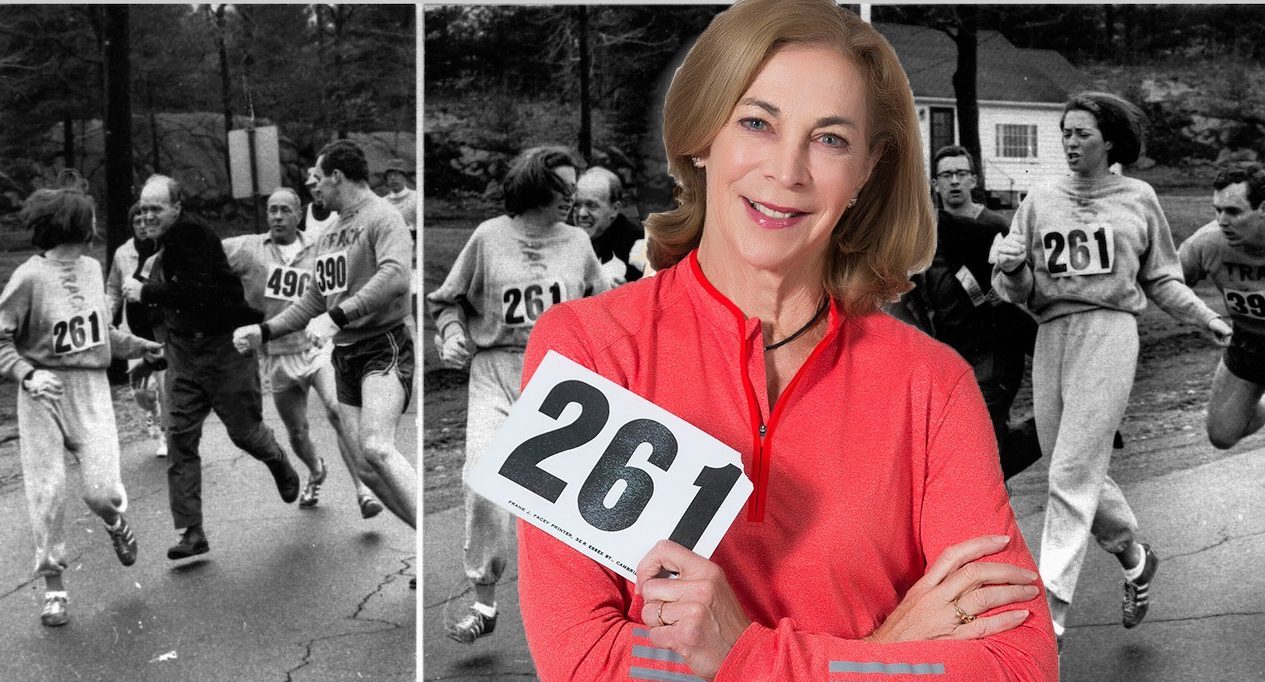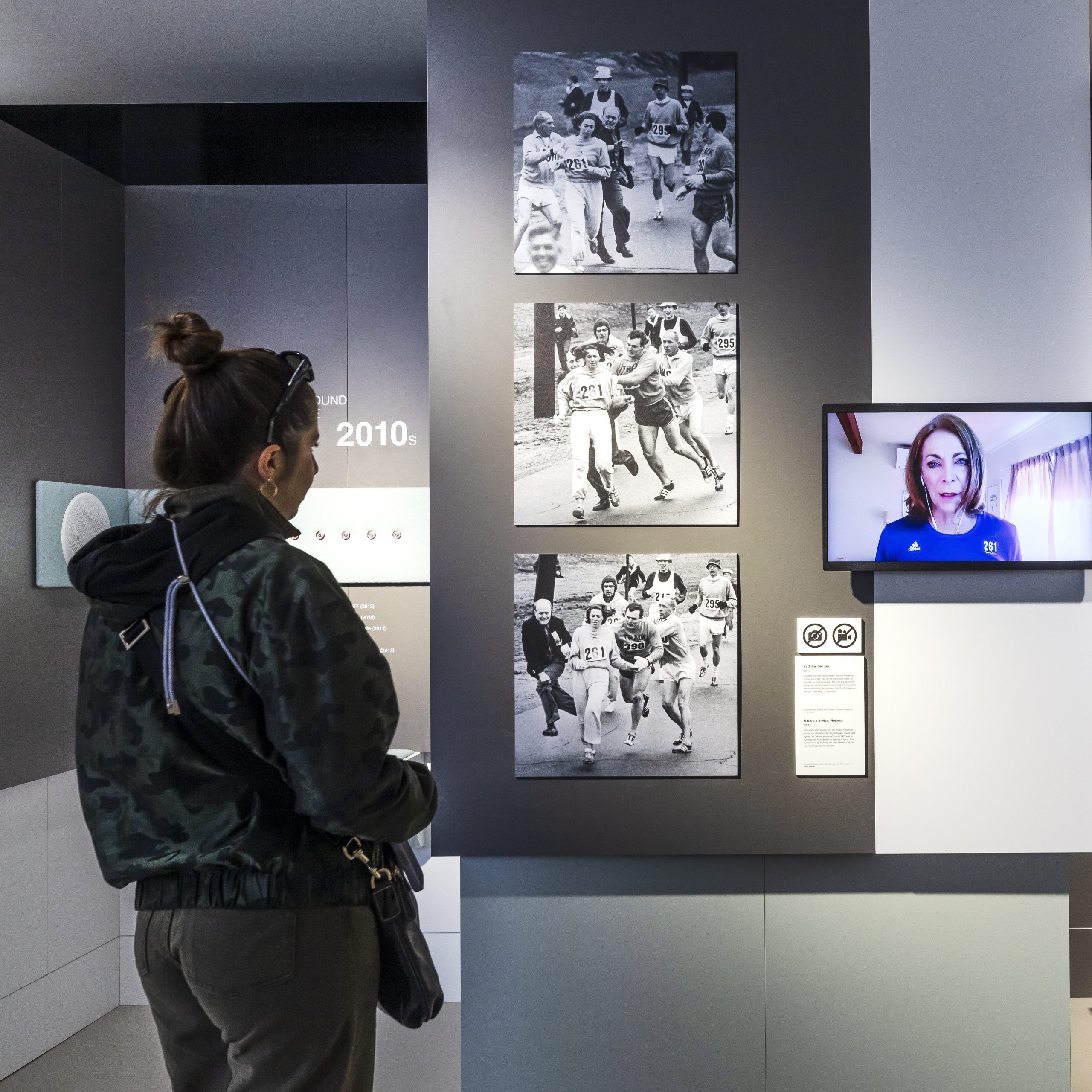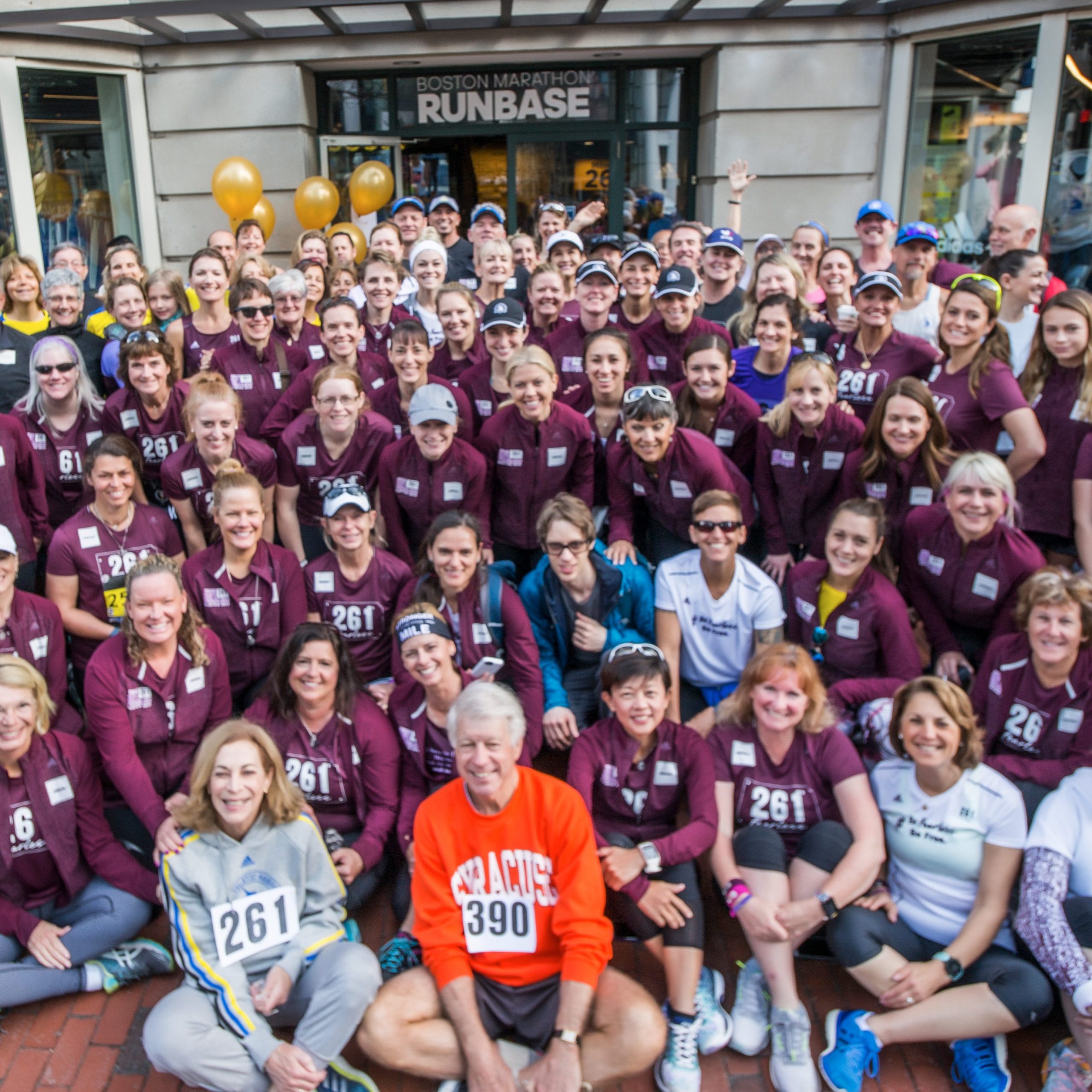Interview with Kathrine Switzer
 01
01
Das Foto des Zwischenfalls wurde vom Time-Life Magazin als eines der „100 Fotos, die die Welt veränderten“ eingeordnet.
Kathrine Switzer is the first woman to have run a marathon as an officially registered competitor. At the time, in 1967, women were not yet allowed to take part in such a competition. That wasn’t so long ago. An interview with Kathrine Switzer about what it was like in 1967 to run the Boston Marathon and why she has been campaigning ever since for women, in particular, to be able to take part in the sport.
Why did you run the Boston Marathon in 1967? Did you expect it to change your life the way it did?
was fascinated by the human ability to run long distances. I couldn’t really run fast but I felt as if I could run forever. Then my coach said to me that the marathon would be too difficult for a woman to run, and suddenly I was faced with the challenge. He said: “If you ran the 42 km distance in practice, I’d be the first to take you to Boston.” A challenge drives you on; a goal drives you to do the hard training it takes. I simply wanted to prove with my first marathon that I could manage the distance. And to prove it to my coach, I actually ran 50 km in training a month before the Boston Marathon. Going to Boston was my reward, because I had shown him that I could do it. I didn’t realise that it would affect my future, except in the sense that I knew that I loved to run and that I would run long distances for the rest of my life.

It was only after the official attacked me during the race that everything changed. I knew that I had to finish the race and fight for the right of other women to run.
Kathrine Switzer, currently on view as an iconic moment in the current exhibition.
How many marathons have you run since then? What was your favourite race?
So far I have run 42 marathons. The Boston Marathon is my favourite because I like both the hilly terrain and the tradition associated with the race.
Please tell us some more about the “261 Fearless” organisation. Why did you set it up?
After leading the campaign to have the women’s marathon officially recognised as an Olympic discipline (1984 in Los Angeles), I thought that women would finally be on an equal footing when it came to running. At this time, running was already a social revolution for women: fitness, health and women’s rights – all of this was driven by the strength that women get from running. But in 1984 and still today, most women live in a fearful situation. They are constrained by poverty, rumours, social and cultural customs and expectations. They think that there’s nothing they can do to change their situation. But those who walk, jog and run change – transform – and the self-confidence they gain from this inexpensive and simple exercise allows them to believe in themselves. This is how “261” came to exist. People started running, discovered my story and were touched by it and told me that my old race number 261 took away their fear, because despite my fear I defended it during the race, I did not give up. The elderly official made me fearless. At that moment, however, I was terrified – I was just a 20-year-old woman running her first race – but my fear made me never give up.
What do you hope to achieve with it?
I was inspired in this race to change things for them and this inspiration led to a career in sport management, in advertising, in journalism, as a TV commentator, as an author and also to the setting up of the non-profit organisation “261 Fearless”, named after my very first race number and my story.
How do people sign up
My friend and I set up the organisation, which has now become a global network. We have only been in existence since 2016, but are already represented in eleven countries. You can sign up with us as a member or even better as a club coach or leader. Just go to the website www.261fearless.org, click the “Education” tab and read through the information. Website gehen, auf den Reiter „Education“ klicken und sich die Infos durchlesen.
Why do you take part in events like the one in the run-up to the Berlin Marathon in 2019? What does this mean to you?
take part in these events because I want to make sure that the message of how much good running can do for empowerment and health and how much fun it is, reaches as many people as possible – especially women. I want them to get moving and feel good about themselves. I think it’s great that Airbnb recognises that the same passion and fearlessness can also be translated to travel. Travelling and staying in beautiful, affordable accommodation is a pleasure and an adventure.Adventure and travel make you strong and open our eyes to a completely new world. Women are often afraid to travel, especially alone. It makes me really happy to see how people grow and develop and discover the world.
“Running makes me the person I am”
Kathrine Switzer with members of her organization "Fearless 261"
 02
02
What does running mean to you today?
It is my spiritual and physical centre – I draw my self-confidence from it, my resilience, my religion, my connection to nature, my creativity, my connection to my work and to my husband. Most of all, however, it makes me the person I am. Has the importance of running changed? Yes, everyone can do it and millions upon millions of people run. Millions of women run. It has become a trend. In the past, sport was only practised by people who were regarded as eccentric and almost no women ran. These days, no one perceives women who run differently, at least not in industrialised nations.
How do you keep motivating yourself to run?
I say to myself that I always feel better after a run; no matter how bad the day is, a run makes you feel better. If it’s a good day, a run makes it even better. I always remind myself also that as I get older (I’m 72!), running is the best thing I can do for my physical and mental health and that I have to keep it up if I want to remain strong and healthy. (That’s a medical fact!).
Author: Tina Langer, Managing Editor and Online Editor, article published in the Online Portal Wunderweib.


The DRIVE
The must-see attraction in the heart of Berlin: welcome to the Volkswagen Group Forum! Welcome to a place brimming with movement, meet-ups and mobility.

